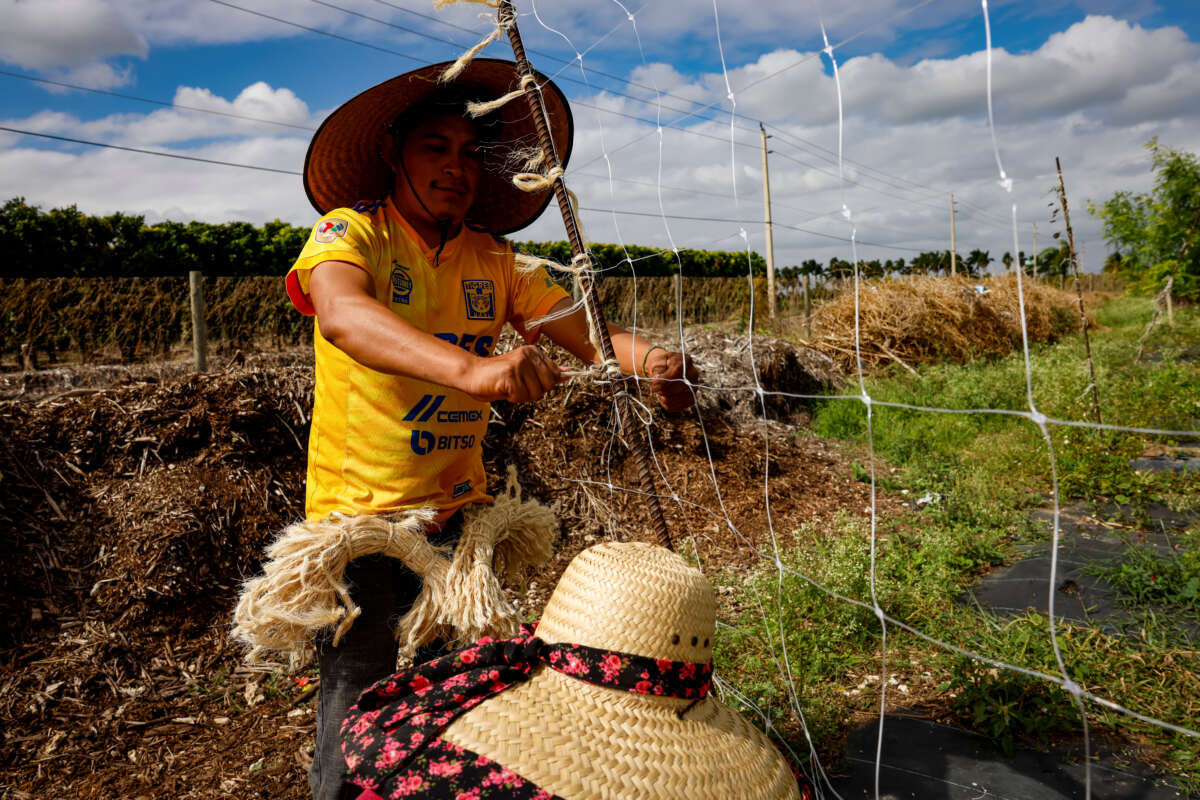This story was originally published at Prism.
Florida legislators dealt a blow to outdoor workers this month by passing a law that bans local governments from implementing heat standards. Starting July 1, it will be illegal for local governments to pass health and safety measures for outdoor workers in extreme heat. The decision comes after Florida experienced its hottest summer on record.
“In just a few months, as Florida temperatures soar to triple digits, outdoor workers will face increasingly dangerous conditions,” said Esteban Wood, the policy director at WeCount!, a nonprofit that helps immigrant workers in South Florida. “Workers will suffer heat stroke, businesses will lose out on billions in lost worker productivity, and local emergency rooms will become overwhelmed with heat related hospitalizations.”
Miami-Dade County’s outdoor worker activists with WeCount! had been organizing for the nation’s first county-wide heat standard since 2017. The coalition of workers officially launched their Que Calor! Campaign in 2021 and came close to getting the Board of County Commissioners to approve the proposed heat standard in September, but by November, commissioners buckled under lobbyist pressure, and the final vote was postponed until March 2024 in the hopes of gaining support.
Less than a week later, state Rep. Tiffany Esposito filed House Bill 433, which was designed to prevent cities and counties across Florida from enacting workplace heat standards. The bill was passed on March 8, just weeks before the county was set to determine the local decision.
According to the Centers for Disease Control and Prevention, average annual heat-related deaths have risen 95% from 2010 to 2022. The ¡Que Calor! Heat Standard originally included a heat exposure safety program for workers and their supervisors about the risks of heat exposure and best practices for minimizing heat-related illness. The standard also stated that on days with a heat index of at least 90 degrees Fahrenheit, workers have a right to 10 minutes of paid rest and a water break every two hours to cool down under shade and avoid heat stroke. The standard has now been raised to 95 degrees.
The proposed Miami-Dade Heat Standard would have guaranteed access to water and shaded rest breaks for more than 100,000 outdoor workers in Miami-Dade County.
“Now, with HB 433 in place, local officials will be powerless to meaningfully respond to their communities in crisis,” Wood said. “Cities and counties will be barred from requiring water breaks for workers and banned from enacting safety rules that provide workers relief.”
Commissioners at the November meeting questioned who would be responsible for paying the fines if the heat standard is not followed since a construction company might hire contractors who hire subcontractors who then hire individual workers for the job. Commissioners said a study would need to be done to gauge the financial impact the standard would have on industries. The newly passed legislation will affect roughly 2 million outdoor workers across the state and render existing local protections “void and prohibited” beginning July 1.
“Make no mistake: when given the choice, Republican lawmakers chose to protect corporate profits over everyday people,” Wood said.
Prism is an independent and nonprofit newsroom led by journalists of color. We report from the ground up and at the intersections of injustice.
Angry, shocked, overwhelmed? Take action: Support independent media.
We’ve borne witness to a chaotic first few months in Trump’s presidency.
Over the last months, each executive order has delivered shock and bewilderment — a core part of a strategy to make the right-wing turn feel inevitable and overwhelming. But, as organizer Sandra Avalos implored us to remember in Truthout last November, “Together, we are more powerful than Trump.”
Indeed, the Trump administration is pushing through executive orders, but — as we’ve reported at Truthout — many are in legal limbo and face court challenges from unions and civil rights groups. Efforts to quash anti-racist teaching and DEI programs are stalled by education faculty, staff, and students refusing to comply. And communities across the country are coming together to raise the alarm on ICE raids, inform neighbors of their civil rights, and protect each other in moving shows of solidarity.
It will be a long fight ahead. And as nonprofit movement media, Truthout plans to be there documenting and uplifting resistance.
As we undertake this life-sustaining work, we appeal for your support. Please, if you find value in what we do, join our community of sustainers by making a monthly or one-time gift.
